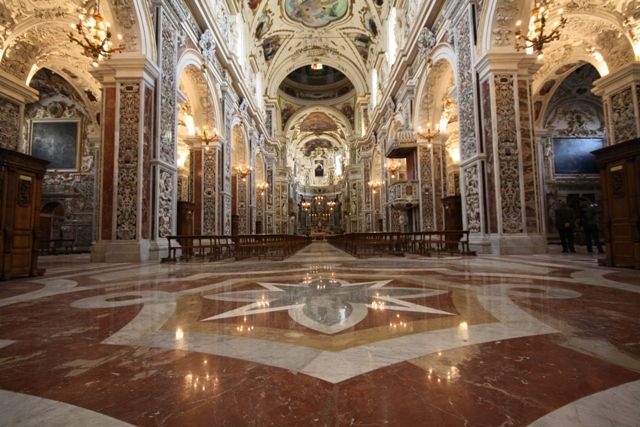 There has been plenty of fascination with the new pope’s statement, “Who am I to judge?” when asked about his views of gay and lesbian people.
There has been plenty of fascination with the new pope’s statement, “Who am I to judge?” when asked about his views of gay and lesbian people.
But there has been no change in church doctrine. As Parker Marie Molloy pointed out in a recent Op-ed, the pope has touted a change in tone while the content underneath the tone remains virtually unchanged.
Molloy points to the fact that the tone correction has not extended to the church’s views on transgender people, as enunciated in his 2012 Christmas homily by Pope Benny:
[Bernheim] quotes the famous saying of Simone de Beauvoir: ‘one is not born a woman, one becomes so’ (on ne naît pas femme, on le devient). These words lay the foundation for what is put forward today under the term ‘gender’ as a new philosophy of sexuality. According to this philosophy, sex is no longer a given element of nature, that man has to accept and personally make sense of: it is a social role that we choose for ourselves, while in the past it was chosen for us by society. The profound falsehood of this theory and of the anthropological revolution contained within it is obvious. People dispute the idea that they have a nature, given by their bodily identity, that serves as a defining element of the human being. They deny their nature and decide that it is not something previously given to them, but that they make it for themselves. According to the biblical creation account, being created by God as male and female pertains to the essence of the human creature. This duality is an essential aspect of what being human is all about, as ordained by God. This very duality as something previously given is what is now disputed. The words of the creation account: ‘male and female he created them’ (Gen 1:27) no longer apply. No, what applies now is this: it was not God who created them male and female – hitherto society did this, now we decide for ourselves. Man and woman as created realities, as the nature of the human being, no longer exist. Man calls his nature into question. From now on he is merely spirit and will. The manipulation of nature, which we deplore today where our environment is concerned, now becomes man’s fundamental choice where he himself is concerned. From now on there is only the abstract human being, who chooses for himself what his nature is to be. Man and woman in their created state as complementary versions of what it means to be human are disputed. But if there is no pre-ordained duality of man and woman in creation, then neither is the family any longer a reality established by creation. Likewise, the child has lost the place he had occupied hitherto and the dignity pertaining to him. Bernheim shows that now, perforce, from being a subject of rights, the child has become an object to which people have a right and which they have a right to obtain. When the freedom to be creative becomes the freedom to create oneself, then necessarily the Maker himself is denied and ultimately man too is stripped of his dignity as a creature of God, as the image of God at the core of his being. The defense of the family is about man himself. And it becomes clear that when God is denied, human dignity also disappears. Whoever defends God is defending man.
Molloy admits that it is not fair to hold Francis accountable to the statements of Benedict but he says we should not forget that those words stand as the most recent papal remarks about transgender people and they are the most mean-spirited remarks ever tossed our way as a subset of society.
Can anyone who reads Benny’s statement not understand how much a transperson reading it would feel less then human and deserving of all the hate directed towards us?
